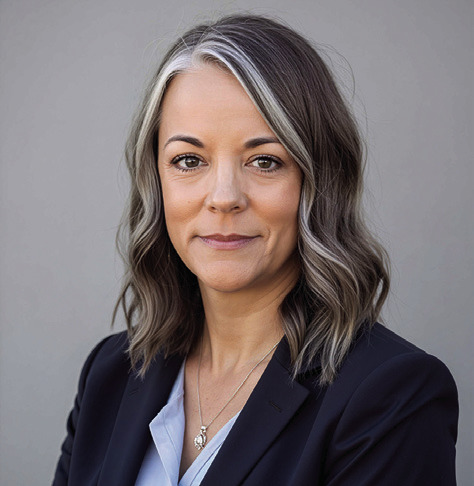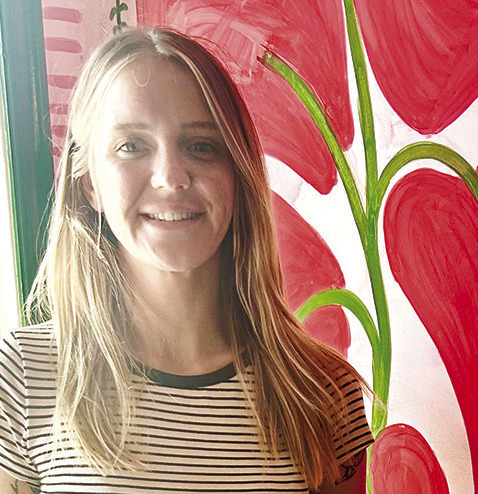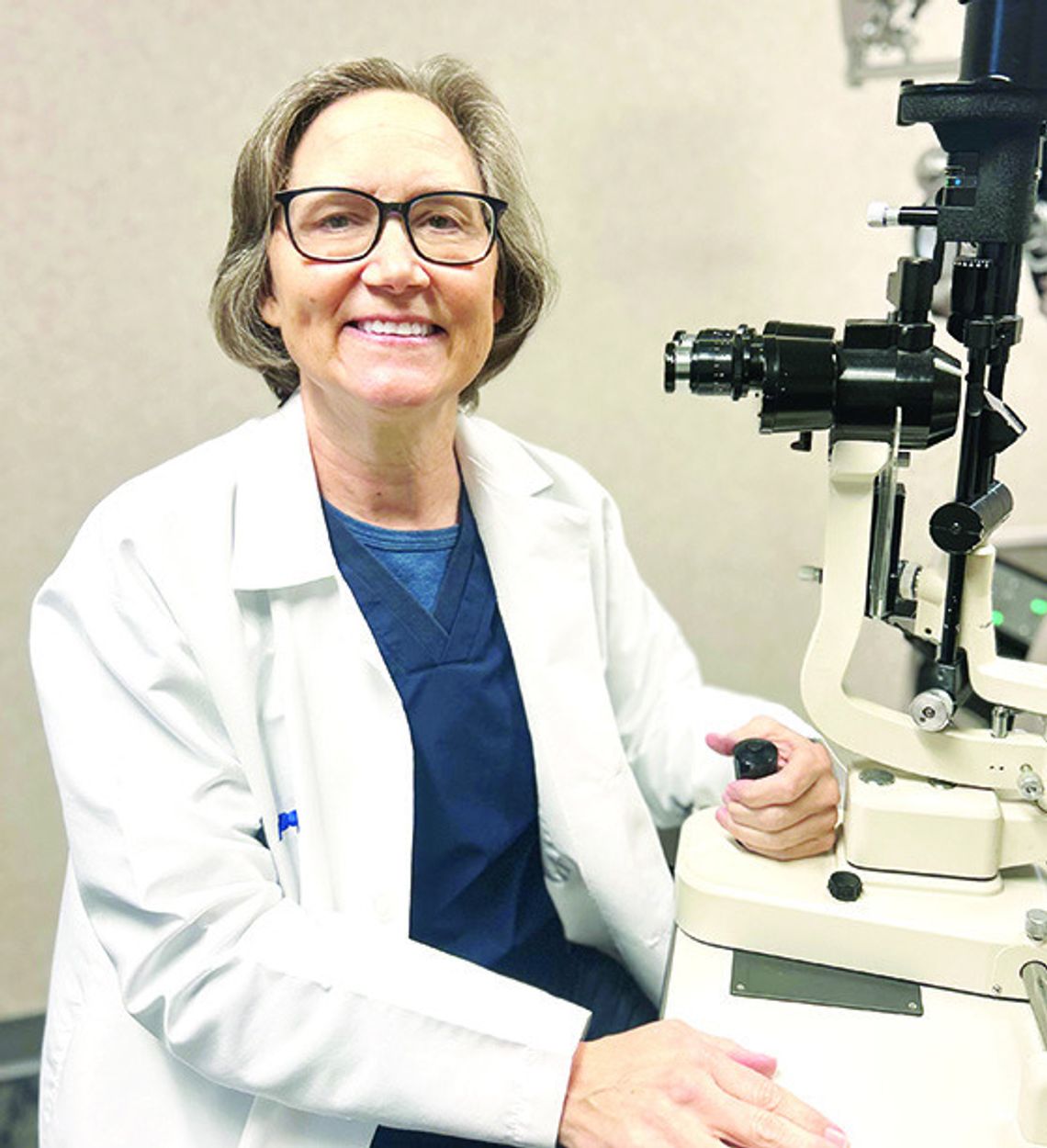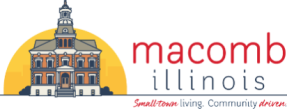In 1972, there were a little over 400,000 women-owned businesses in the United States. Today, there are over 14.5 million women-owned businesses, representing about 40 percent of all businesses. October marks National Women in Small Business Month, and the Community News Brief is proud to feature numerous women who own and/or lead small businesses within the region.
Last year, the Brief reached out to 16 business owners to find out more about what motivated and drove them to open their business in the McDonough County region. Those featured in the 2024 edition included Dr. Karen Blakely, Stacy Foxall, Caren Bordowitz, Lorraine Epperson, Lynne Campbell, Dawn Piper, Robin Briney, Alexis Joyner Newsum, Kristen Conrad, Dr. Jamie McClure, Jami Hocker, Amay Espinoza and Sirina Waddell. To commemorate 2025's National Women in Small Business Month, the Brief contacted nearly 20 business owners, operators and/or leaders. Those who responded will be shared in upcoming issues.
McDonough Eye Associates: Dr. Jill Brody, Ophthalmologist
505 E. Grant, St. 206
How long have you owned and/or operated your business?
31 years in Macomb (worked in field 36 years). After four years of institutional medicine, the lack of control and responsiveness, I set out in private practice, taking over the patient population here in Macomb serendipitously in 1994. MEA was formed in 1998 when I and optometrist Dr. Tim Williams, who was also working at the SIU Eye Center in Springfield, with his wife working on SIU research, joined forces.
The practice needed another provider so we established McDonough Eye Associates.
What is your business' specialty/focus?
Medical and surgical care of the eye. My fellowship was in cornea and external disease with research on shingles in the eye.
Why this line of work for you?
I graduated from the University of Iowa College of Medicine in 1988, but I knew I would get an advanced degree in ophthalmology even back when I was in high school and I needed contact lenses because I played sports. Our local optometrist would only fit hard contact lenses, which were not convenient for an athlete. My mom, who was a nurse, knew that soft contacts would be better and the only person that would fit them in town was the ophthalmologist. Dr.
Hadlund was a very busy surgeon and I spent a lot of time in his office waiting for him, so when he or his tech was not in there, I was messing with the instrumentation until they knocked on the door. Also, when he knew I was interested in medicine, he allowed me to come and watch cataract surgery and I was hooked.
What did you do before you were at McDonough Eye?
After finishing my fellowship at Harvard University, I was seeking a position in academic medicine, and to find a matching position for my professor husband, Bill Lambert, at the same institution. My criteria also included coming back to my roots in the Midwest as I was born and raised in Waterloo, IA. Dr. Lawrence Kerr had joined SIU Medicine, and I knew he was looking for a replacement ophthalmologist. It worked perfectly as I could work four days in Macomb and one day a week in Springfield, while Bill did his research there with a National Institute of Health grant. We first settled in Petersburg and I commuted to Macomb.
How did you learn/hone your skills/expertise?
After medical school at Iowa, I did my ophthalmology residency at George Washington University in Washington DC, followed by a cornea Fellowship at Massachusetts Eye and Ear infirmary of Harvard Medical School. I would give the University of Iowa College of Medicine the most credit for shaping the doctor that I am today. Many of the skills I learned at Iowa I still use today as a diagnostician.
What's your favorite thing about leading this business, and why? Biggest challenge(s)?
It's really rewarding to see the children and grandchildren of your patients coming in to see you as the practice ages. Truly, the best part of my job is being an advocate for my patients and teaching them about their eyes, about the condition of their eyes and how it is a window into their bodies and how we are going to improve them or get them taken care of in a timely fashion.
Starting a practice from scratch, with no medical business knowledge because it's not taught in medical school, was one of my biggest challenges. I quickly found I had to learn a lot on my own, but the smiles I have seen on my patients' faces throughout the decades, especially when they take a patch off their eye the morning after surgery, has made those initial 'bumpy' years' worth it time and time again.
How do you set yourself apart from others who might be doing the same thing?
I would say my approachability and my knowledge base set me apart from the competition. I am always available for a consult or advice on the eye or neuro- ophthalmology.
Did you feel you were treated differently as a female?
When I started my medical training, only about 15 percent of medical school students were female, with most going into primary care. I had no female ophthalmology professors at Iowa, but my roommate, who was also planning on ophthalmology as a career, and I were not deterred.
It was a difficult surgical residency to get into and you had to get good letters of recommendation to even have a chance. Medical school at Iowa was difficult in that as a female, you were always tested to see if you were tough enough for surgery. They expected you to faint or run out of an OR suite, to cringe at crass comments or not be able to hold a retractor long enough. I just made sure they didn't see me sweat. When I was matching for ophthalmology residency, there were only 472 positions in the United States, and my male advisor, who was an ophthalmologist, was pessimistic and thought I wouldn't match and wanted me to apply to primary care just in case.
I never did that. Things have changed for the better as when I started in 1989, when only 10 percent of residents were female; now it's over 40 percent.
When I started on the McDonough District Hospital (MDH) campus, I was the first female surgeon in town. In the women's surgical area, there were no large lockers like the male physicians had and there were no green scrubs, so I had to speak up and say I wanted a full-size locker like the guys had and I wanted regular green scrubs like the male physicians had. MDH was accommodating.
Goals for your work?
I take my oath seriously and I will truly do what's best for a patient no matter what.
Advice to women who want to be in a leadership role in an organization?
Be eager to come out of your comfort zone, learn new skills and have a positive attitude.
Macomb Audiology & Hearing Aid Center: Dr. Christine Standard 515 E. Grant St.
How long have you owned and/or operated your business?
31 years in Macomb and one year in Monmouth.
What is your business' specialty/focus?
We are a full-service clinical audiology practice, with three full-time employees and one part-time employee, that serves individuals from birth to seniors. We provide diagnostic hearing evaluations, hearing aid fittings and services, external bone conduction devices and audiological counseling for hearing, tinnitus and vertigo related disorders.
Why this line of work for you?
My first career path was speech pathology after a captain I worked for at Fort Sill suggested that field, but when I took my first audiology class as an undergraduate, I loved everything about it.
What did you do before you were at your current place of employment?
I worked for Dr. Terrance Woods, who was Macomb's first ear, nose and throat specialist, before moving into private practice over 21 years ago.
How did you learn this trade/business?
I graduated from Western Illinois University with my bachelor's and master's degrees in audiology after meeting my husband, Mitchell, who was a Macomb resident, when we were both working for the Philmont Scout Ranch, the Boy Scouts of America's largest National High-Adventure Base, in Cimmaron, NM.
I later earned my doctorate in clinical Doctorate of Audiology from Central Michigan University in 2010.
What's your favorite thing about leading this business, and why? Biggest challenge(s)?
One of my favorite jobs is testing the newborns. Babies are awesome, and the most rewarding part of being an audiologist is that many times what we do, even from the very beginning of someone's life, can have a large impact on their life in ways that you never even imagined.
One of the most challenging, yet necessary part of the practice, is the hearing aid consultations and fittings.
The first step to ensure the patient understands all aspects of their journey into hearing aids is in-depth counseling. There are no cookie cutters, and every individual is different. What works for one may not work for another. Sometimes figuring out what works the best takes time and perseverance.
How do you set yourself apart from others who might be doing the same thing?
I am now a certified hearing loss specialist for individuals with dementia.
As a Medicare and Medicaid service audiologist, and working for the Division of Specialized Care for Children and Office of Rehabilitation Services, as well as serving with the Veteran Administrations Community Care Network (VACCN), I also provide a unique level of care.
Working with all of the State of Illinois Services and Medicare since I started as an audiologist is one of the biggest things that sets our practice apart and one of the things that I am most proud of.
Through VACCN, my practice provides audiological and hearing aid services to veterans, with authorization from the Veterans Administration. I have also provided audiological care for the individuals with disabilities who are part of area social service agencies, with those clients being some of my longest standing patients.
Goals for your work?
I've made it my mission to educate the public about hearing and advocate for those in need of hearing assistance. We're here to help and we will work hard to ensure our patients are happy.
Eras Vintage: Kiley Lee, 127 W. Calhoun St.
How long have you owned your business?
We've been open for a little over a year now.
What is your business' specialty/focus?
Vintage goods
Why did you open your own business?
To add something cool to our community while hopefully lessening the landfills a little bit.
What did you do before you opened your business?
Design
How did you learn this trade/business?
By doing it as a hobby. It's a slow learning process and I'm still learning every day.
What's your favorite thing about owning your business, and why?
Biggest challenge(s)?
My favorite thing about owning my own business is having control of my schedule so I can be more present with my family. And luckily this business allows me to incorporate my family so we all do it together.
How do you set yourself apart from others who might be doing the same thing?
I don't really try to. It’s not really a 'competitive' community around here.
We all help each other. If I don't have something you're looking for I'm going to point you in the direction of the other local shops and vice versa.
Goals for the business?
Honestly, I'm not really sure yet. I'm always looking to try new things so who knows what's next to come.
Advice to women who want to start their own business?
Truthfully, don't monetize your hobbies unless you're absolutely sure you'll still love it doing it full time. It becomes a lot more 'business' and a lot less 'passion' once it's a real business. I'm not a huge fan of the 'business' part of owning a business, but at the end of the day the trade-off is worth it because it allows me to find and collect so many more pieces than I ever could before and get them into the hands of people who will love and appreciate them.
Look for additional stories featuring local women in upcoming issues of the Community News Brief.











